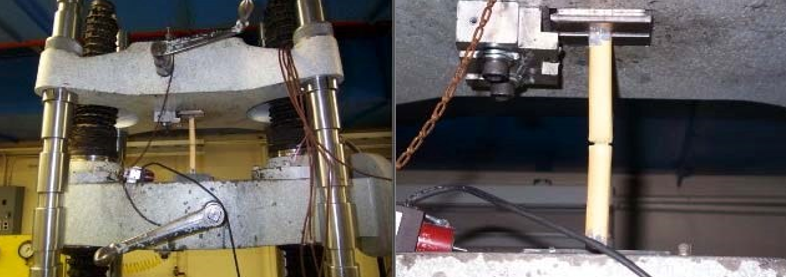J.G. Moroz1 and S.L. Lissel2
- Sc., Structural Designer, Halcrow Yolles, Calgary, AB Canada jason.moroz@halcrowyolles.com
- Associate Professor, Civil Engineering Department, The University of Calgary, Calgary, AB Canada sllissel@ucalgary.ca
ABSTRACT
In order to produce structurally sound housing for developing countries, different approaches need to be taken to produce economically viable buildings. One method to produce low cost housing is the use of indigenous materials in place of conventional materials such as steel. Bamboo is a rapid-renewable plant native in many places of the world, and has many beneficial properties that make it a promising, inexpensive alternative to steel reinforcement.
This paper presents an overview of experimental testing carried out using the bamboo species arundinaria amabilis, more commonly known as tonkin cane for use as internal reinforcement in masonry shear walls. The results of tensile strength tests on the bamboo, bond strength tests between a low-cement ratio grout and the bamboo, and experimental quasi-static cyclic testing on two shear walls are presented. One wall contained the required seismic reinforcement described by the Canadian Masonry Design Code S304.01-04, while the other contained tonkin cane bamboo as internal reinforcement. These results are analyzed and discussed.
KEYWORDS: Bamboo; Cyclic; Indigenous; Low Cost; Masonry; Shear Walls
C6-3



